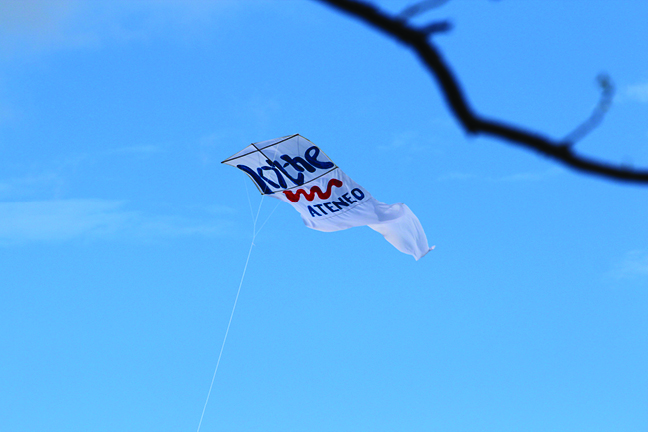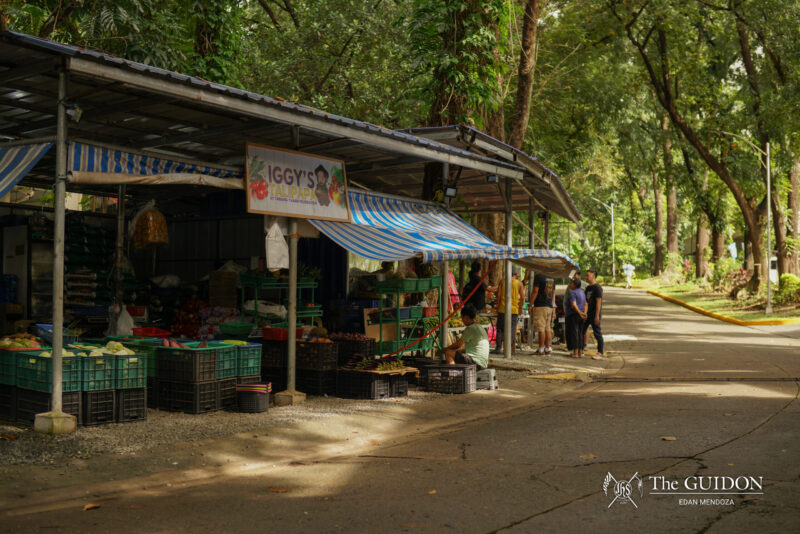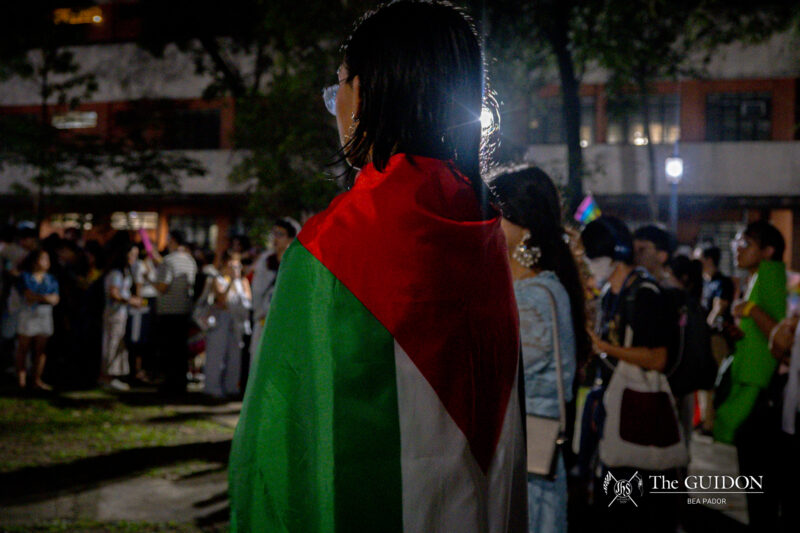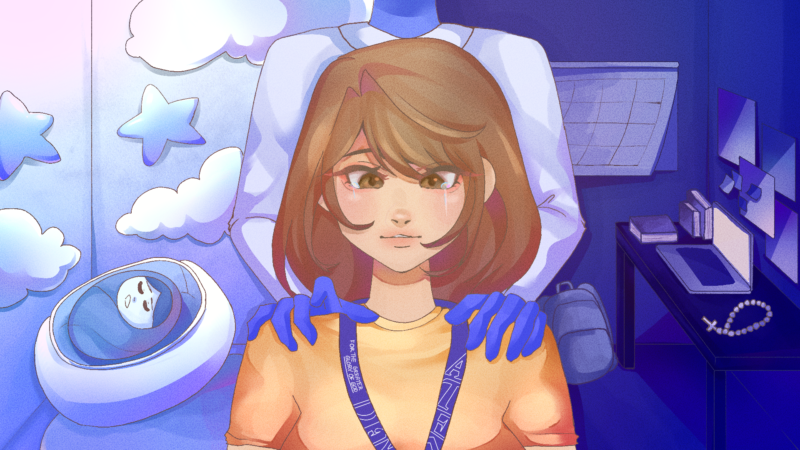“Cancer” is a frightening word. One of the most dreaded illnesses of this century, it evokes suffering, grief and long waits in hospital rooms. It carries with it the stigma of terror.
But Kythe, an Ateneo-based organization, doesn’t dwell on that. For over 20 years, Kythe members have been visiting kids with cancer, offering them support through activities that are aimed at giving patients experiences that have nothing to do with the illness they are battling.
History of Kythe
Kythe began not as an organization, but as a thesis. Icar Castro and Maria Fatima Garcia-Lorenzo were taking up their master’s degrees in psychology in the Ateneo back in 1992, when they began working with kids with cancer for their thesis.
“They got a group of volunteers together, far more than they expected, and that was how Kythe began,” shares Angel Illana, a life sciences senior who is one of the current hospital heads of Kythe.
From the initial group of 20 student volunteers and one partner hospital, the organization has expanded from its university roots to 500 volunteers—both students and non-students—and 11 partner hospitals. The student arm, Kythe-Ateneo, is particularly active and visible on campus and was a recipient of a Ten Outstanding Youth Organizations Award in 2006 for its work.
The work “kythe” does is simple on paper: It offers healing. “Kythe is a Scottish word that means ‘to manifest healing through simple sharing and togetherness,’ and that’s what we believe in,” says Illana.
The way Kythe does this is through psychosocial support in the form of weekly hospital visits, during which Kythe members engage in what Illana calls “structured activities,” including storytelling, arts and crafts and games.
Apart from the hospital visits, Kythe has various other projects, like Kythe Flying, where the members fly kites with the kids in the Ateneo. Another project is Kythe Week, held every February, which aims to open the advocacy of Kythe to the Ateneo community.
For Kythe Week this year, Illana says programs include a photo walkthrough, so people can see what a Kyther’s journey is like with the kids, as well as a bloodletting program in partnership with The Pre-Medical Society of the Ateneo. There is also the Be Brave, Get Shaved/Hair2Share program, which has volunteers from the school cut their hair to be turned into wigs or shave their heads to promote awareness, and a large-scale commemoration for all the kids who have passed away.
“When you hear Kythe, you think kids with cancer, but there are so many other stories—of hope, of courage—and Kythe Week’s our way of telling those stories and making sure people hear them,” says Illana.
Being a Kyther
Joining Kythe can seem intimidating at first. “I remember reading about Kythe in the RecWeek manual in first year, seeing the words ‘kids’ and ‘cancer’ together and I got scared, so I didn’t think of applying at all,” admits Illana.
But despite the heaviness of the experience—or perhaps because of it—many are drawn to this special undertaking of bringing joy and support to kids who need it.
“You’re faced with the reality of death all the time and lots of other scary stuff too, like the reality of how bad our public hospitals can be,” says English Department Lecturer and former Kythe Vice President for Hospitals Nica Bengzon.
A good number of people are drawn to the work Kythe does for personal reasons, too: Some have lost family members to cancer or have had brushes with illness themselves. “I know what the experience of prolonged hospitalization is like,” says Bengzon, who has lost family members to cancer. “If there’s a way to make it less awful for someone to be there, why not?”
All members of Kythe seem to agree, however, that the heart of the experience is not the illness, but the kids. “The kids surprised me because they were in a hospital but they were the happiest bubbliest kids ever,” says Illana. “If it weren’t for the IVs and masks, you wouldn’t think they were sick.”
The focus of the org is helping and supporting the kids through a variety of activities designed to bring them enjoyment. This isn’t a simple matter of heading off to the hospital with nothing but good intentions; everything, from the appropriateness of the activities to the color of the shirt the volunteer is wearing is given a great deal of thought.
“The good thing [about Kythe],” explains Bengzon, “is that they make sure that every step of the way you’re thinking about what you’re doing and how it’s affecting you and the people around you.”
There are a variety of things to think about and get used to: How old the kid is, what kind of activities their personality would be suited for and the best way to approach them to make them warm up. Some kids, Bengzon says, don’t like playing with girls because it reminds them of being with nurses. Incidentally, this is why wearing white is a no-no during hospital visits.
“We train all the applicants on basic protocol during RecWeek,” says Illana. But she says protocol is not the full measure of being a member of Kythe. “Once you become a Kyther, you learn to kythe while you’re falling in love with it, so we all have our own ways of being Kythers—and that’s something that can’t be taught,” she says.
Love and suffering
“The thing about the kids and the org is that we’re kept together by a magical sort of love,” says Illana, which would sound corny if it weren’t utterly true. She shares a story about a one-year-old kid named Gabby. “You could call Gab different,” she says. “His head’s deformed and he doesn’t have joints.”
She goes on to explain her difficulties with him: She couldn’t tell when Gab was smiling; he couldn’t participate in arts and crafts sessions because he didn’t have joints in his elbows and he had stopped talking. “I had no idea how to be Kyther around him,” she says. “In a sense, I didn’t know how to love him.”
She recounts how she avoided playing with him, although she would always pass by his bed to say hi. One visit, after lingering by his bed for longer than usual, something changed. “Gab asked for a cookie, took a bite from it and gave it to me,” she says. “He took what he could, made it his own and gave it to me with the biggest, brightest smile I’ve ever seen on his face.”
“He loved me then,” she continues, “he loved me first and he changed the way I love now.”
Gab passed away before his second birthday. “It was as painful as you can imagine,” says Illana.
Bengzon says there are “two dangers” of being in Kythe: Making it into a light, “fun” activity, or going the other extreme and letting the experiences weigh you down. But it’s experiences like Illana’s with Gab that make up the powerful, contradictory nature of being in Kythe: Experiencing suffering and experiencing love.
“[Gab] taught me that even when I don’t know how, even when I’m scared, I can give my heart and that love can change so many things,” says Illana.
Kythe walks the painful line between life and death hand-in-hand with these cancer patients and finds a lot to give—that in itself is an experience. “You have to be brave,” says Bengzon, “to immerse yourself in that kind of environment and still find things that are joyful—and to be a means of transporting joy to other people.”







